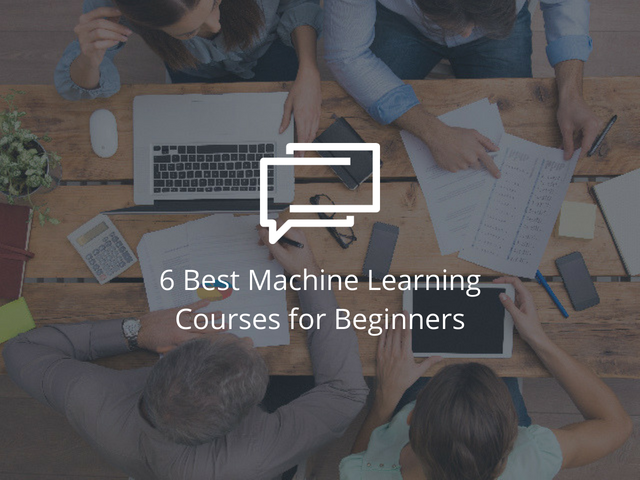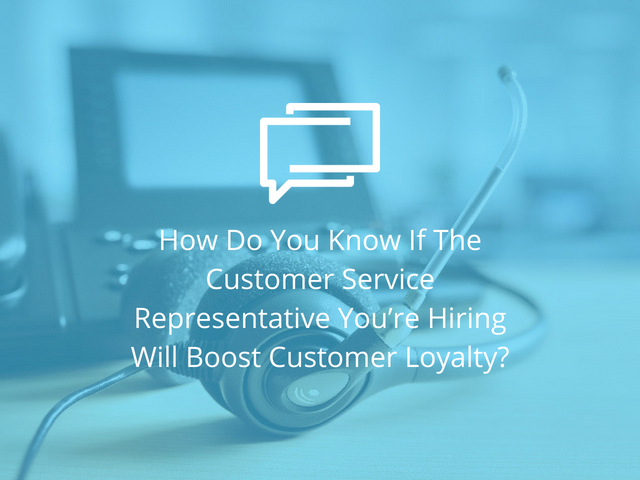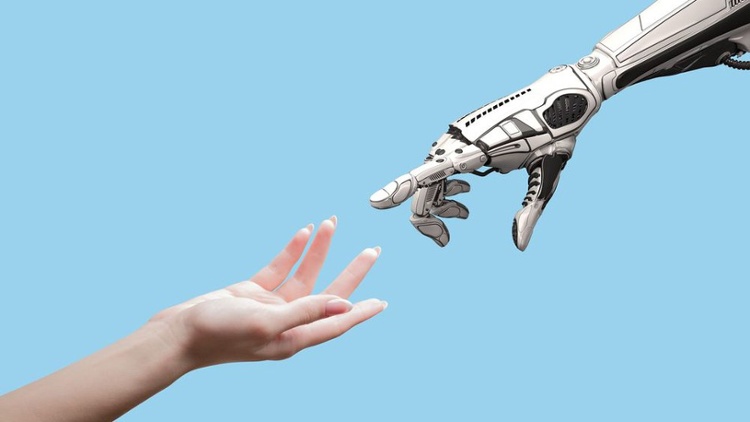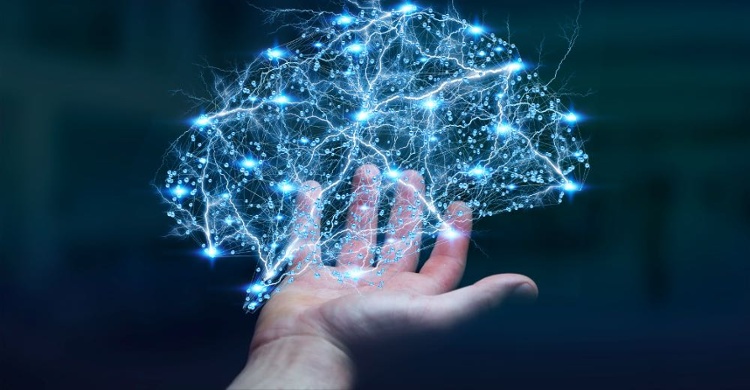Machine learning. Yes, it’s one of the most popular buzzwords in tech today. And no, it does NOT involve robots replacing humans and sitting in classrooms. We’ve gathered 6 of the best machine learning courses for someone who has no idea what machine learning is.
According to TechTarget, “Machine learning is a type of artificial intelligence (AI) that provides computers with the ability to learn without being explicitly programmed.” Machine learning is behind the creep who can identify the faces and locations in your photos. It powers those smart thermostats that can learn about your daily routine and automatically adjust the temperature when you leave the house and come back. It’s the wizard behind the curtain for many speech recognition technologies. It’s the technology in Woveon that learns your behavior and helps you prioritize your customer conversations.
Request a demo on Conversational Technology and manage customer conversations with ease.
Sound fascinating but a little overwhelming? Want to learn more about machine learning but scared about not being able to understand? Don’t have a technical background? No worries! There are tons of people out there in your same exact position, and they’re scraping the Internet for resources that are easy to understand. We’ve got your back with these…
6 Best Machine Learning Courses for Beginners
Machine Learning
Stanford University
Price: free, $79 for certificate (financial aid available)
Length: 10 weeks
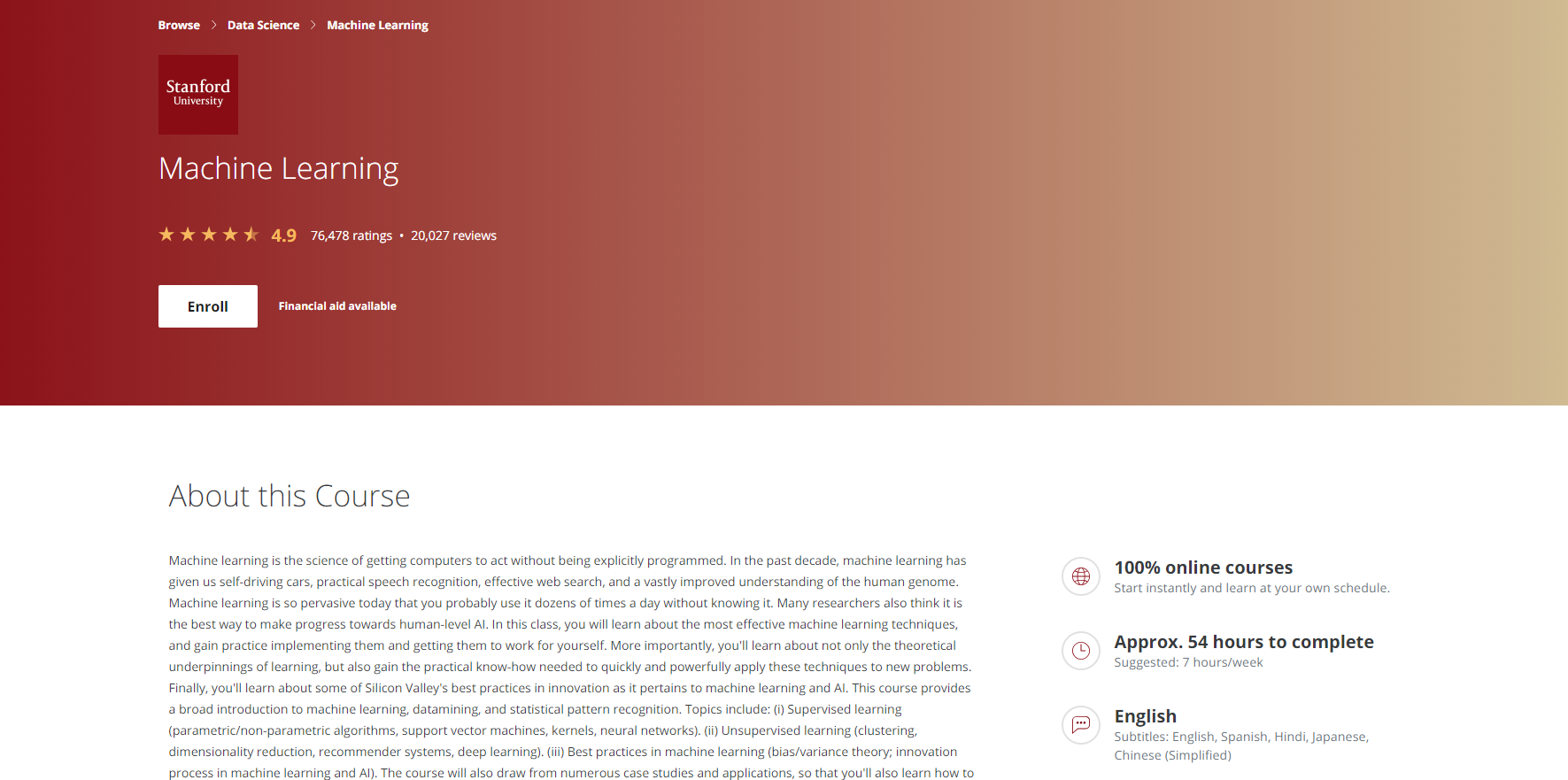
This machine learning course has received excellent reviews from students. It offers a structured combination of readings, videos, practice quizzes, and graded assignments (with flexible due dates if you work better with deadlines!). It is very suitable for beginners because it even reviews the mathematical background you’ll need for the course, such as linear regression with one variable and linear algebra. It even talks about cool applications of machine learning, such as smart robots, computer vision, medical informatics, etc. (‘Cause who doesn’t want to know more about smart robots that we can command to do our work for us.)
Professor Andrew Ng is the Co-Founder and Co-Chairman of Coursera as well as the Chief Scientist and Vice President at Baidu. His work focuses on machine learning, particularly deep learning. He was a leader in the creation of Stanford’s Massive Open Online Courses platform and the “Google Brain” project that developed deep learning algorithms.
Learning from Data
California Institute of Technology
Price: free
Length: 10 weeks
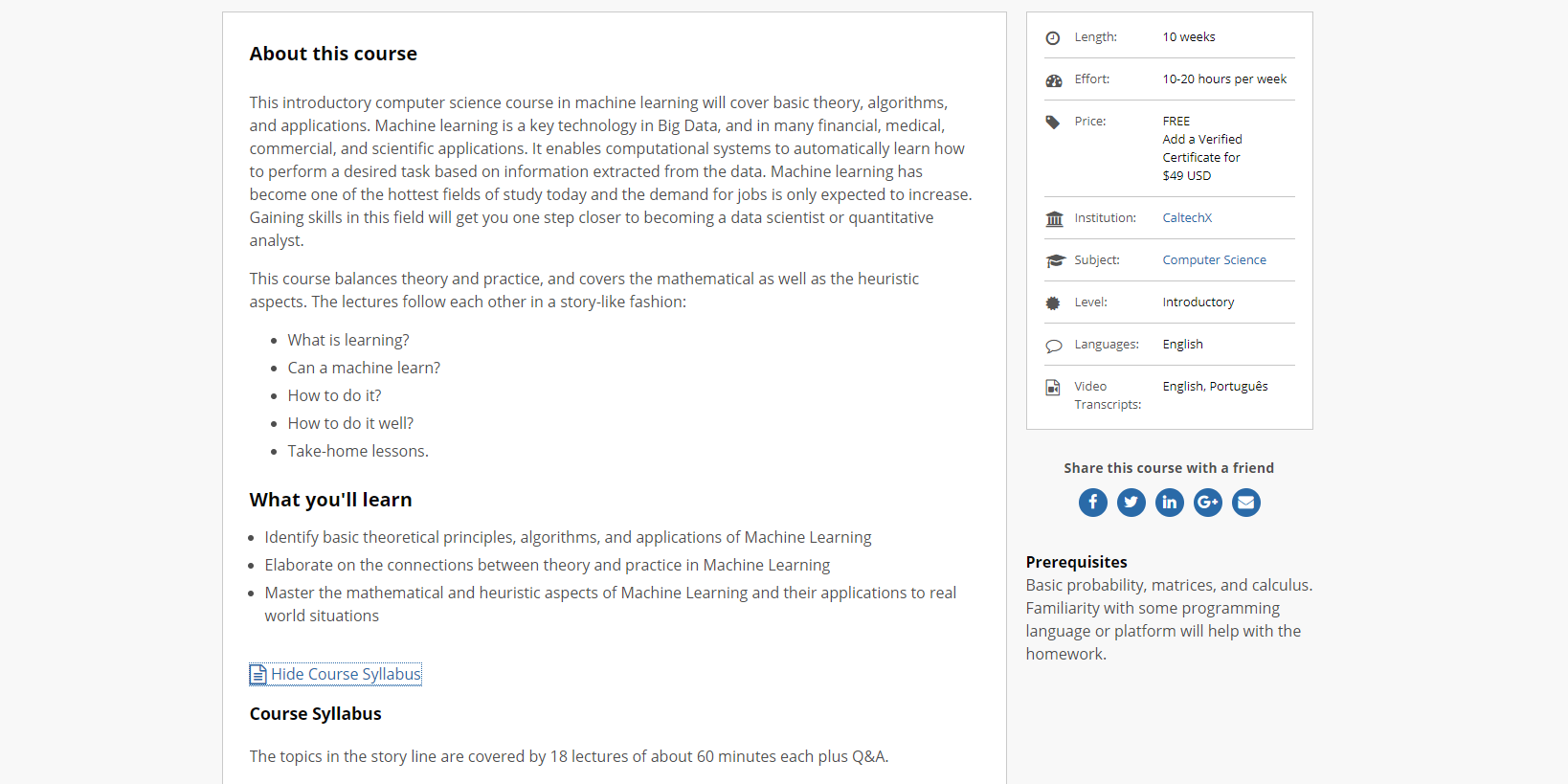
Yaser S. Abu-Mostafa is a Professor of Electrical Engineering and Computer Science, Co-Founder of the Neural Information Processing Systems conference, recipient of several national and Caltech teaching awards, such as the Feynman Prize, and co-author of Learning From Data, a bestseller on Amazon. He has 9 years of experience as a technical consultant for Citibank.
Principles of Autonomy and Decision Making
Massachusetts Institute of Technology
Price: free
Length: self-paced
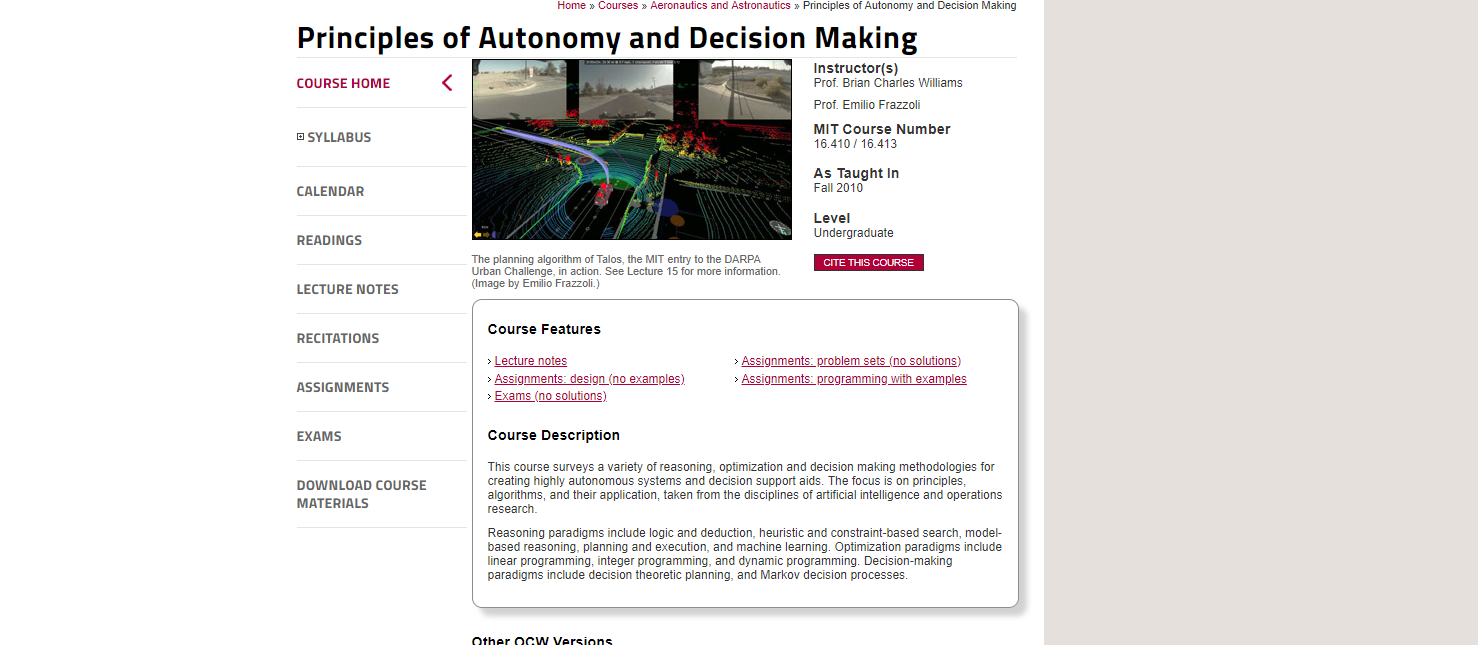
Brian Charles Williams is a Professor of Aeronautics and Astronautics who built the first fully self-repairing, autonomous space explorer, Remote Agent, that was put into use in May 1999 onboard the NASA Deep Space One probe. In 2000, as part of the Tom Young Blue Ribbon Team, he evaluated future Mars missions. He is also part of NASA Jet Propulsion Laboratory’s Advisory Council.
Emilio Frazzoli is a Professor of Aeronautics and Astronautics and Director of the Aerospace Robotics and Embedded Systems (ARES) group. He received the NSF CAREER award and IEEE George S. Axelby award.
Machine Learning A-Z™: Hands-On Python & R In Data Science
Udemy
Price: 205 AUD (Bonus when they have promotions to get the course at $12.99AUD!)
Length: 40.5 hours
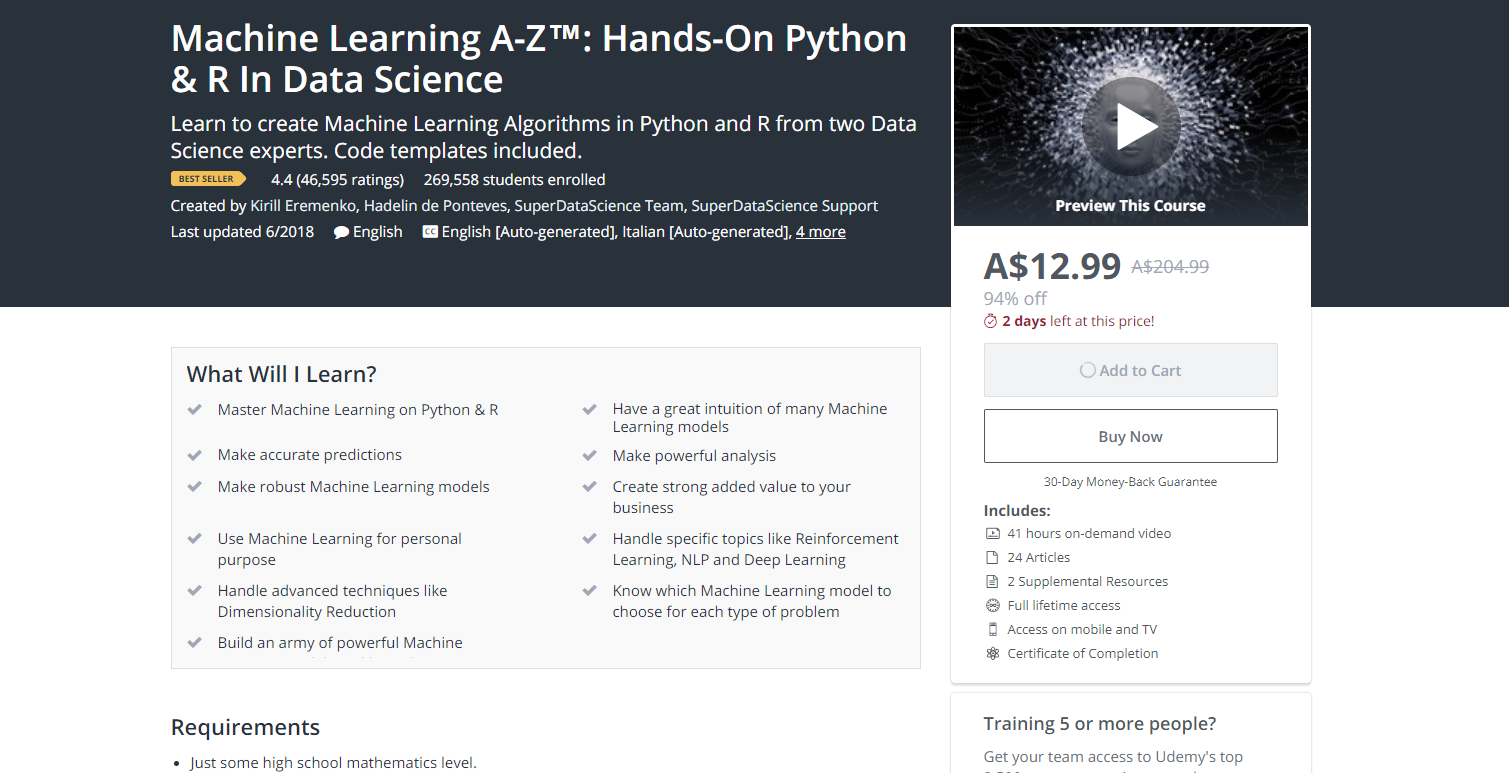
Kirill Eremenko holds a Bachelor of Science degree in Applied Physics and Mathematics from the Moscow Institute of Physics and Technology and a Master of Commerce, Applied Finance, and Professional Accounting from the University of Queensland. He was trained at Deloitte Australia and has 5+ years of experience as a Data Science management consultant in transport, finance, retail, etc. He teaches Data Science and Forex Training courses on Udemy.
Hadelin de Ponteves has degrees in Mathematics and Engineering and a Master of Research in Machine Learning. He was a Data Engineer at Google and has 4 years of experience in data science and consulting.
Understanding Machine Learning
Pluralsight
Price: $29/month or $299/year for entire Pluralsight platform, 10-day free trial
Length: 40 min.
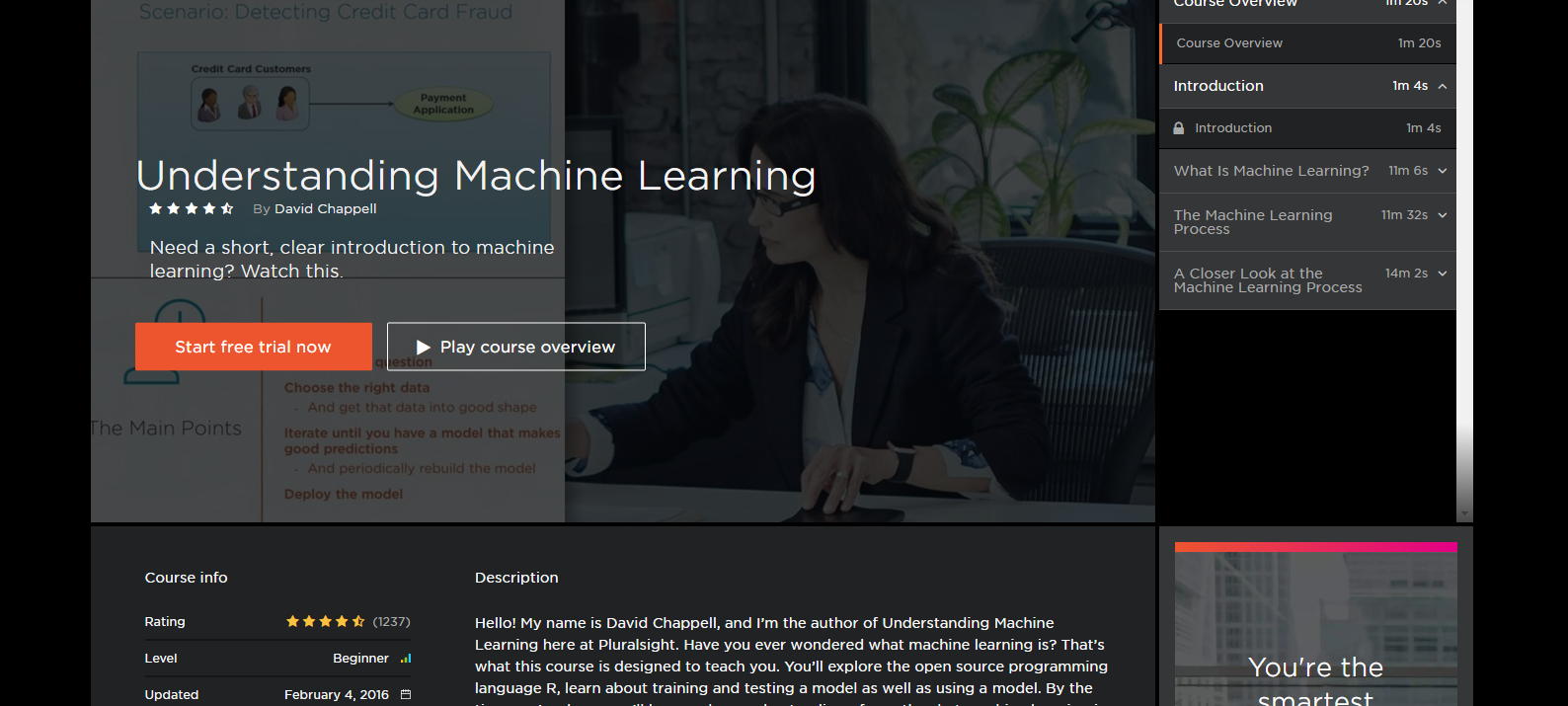
David Chappell is Principal of Chappell & Associates, a law firm that advises technology firms on law and business. David has consulted for Stanford, Target, HP, Microsoft, and IBM, spoken at 100+ events, and led seminars in 45 countries for tens of thousands of attendees. He also teaches courses on IT Innovation and Cloud Computing on Pluralsight.
VideoLectures.Net: Machine Learning Section
Price: free
Length: self-paced
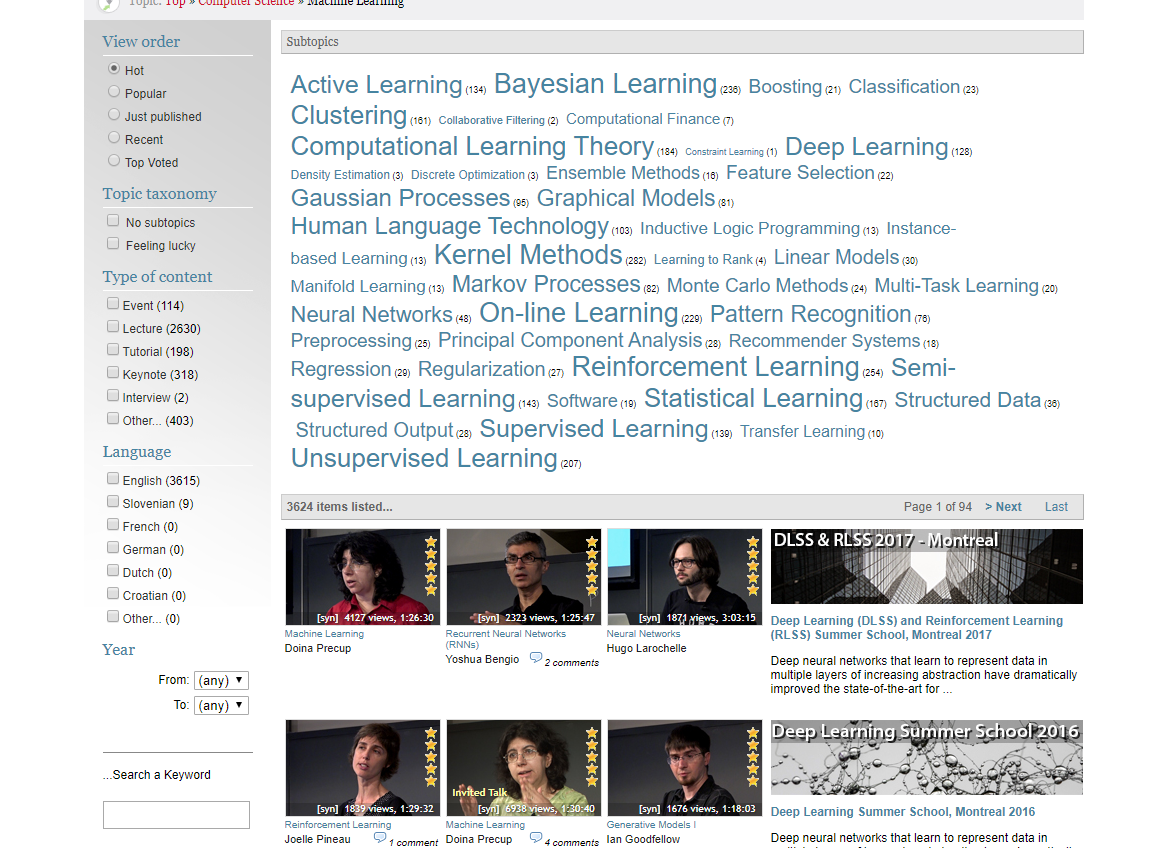
Includes 3,500+ videos of experts in the field delivering talks at conferences, workshops, summer schools, activities that promote science, and other events. Think of it as a database of machine learning courses.
VideoLectures.Net is a project backed by University College London. It was a recipient of a UNESCO World Summit Award in the e-Science & Technology category at the United Nations Summit on the Information Society.
BONUS
Think you’ve mastered the beginner level machine learning courses? Feeling ambitious for a new challenge? Check out this intermediate level course.
Intro to Machine Learning
Udacity
Price: free
Length: 10 weeks
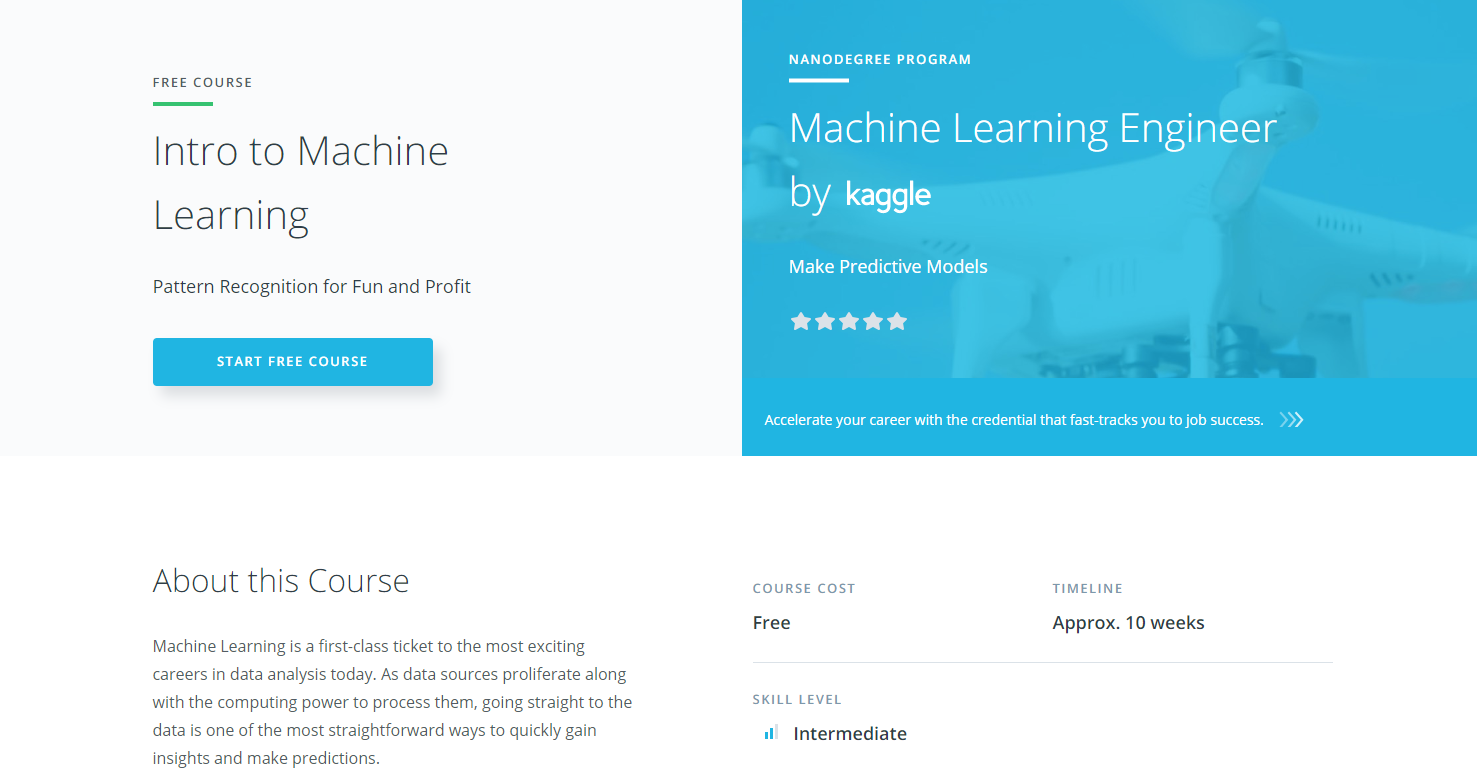
- Katie Malone graduated from Ohio State University with an undergraduate degree in Engineering Physics and from Stanford with a PhD in Physics. She works as a data scientist in the research and development department at Civis Analytics, a startup in consulting and data science software.
- Sebastian Thurn is the founder of Udacity and a Research Professor at Stanford who invented the autonomous car and led the Google Glass project. He has been recognized by Fast Company as the 5th Most Creative Person in Business and by Fortune as one of the 50 Smartest People in Tech.
- Udacity aims “to bring accessible, affordable, engaging, and highly effective higher education to the world” and provides Nanodegree credentials and programs that are catered to aspiring data analysts, mobile and web developers, etc.
Did you find these machine learning courses helpful? Comment below the most interesting thing that you learned about machine learning!
Looking to apply your newly acquired knowledge on machine learning to Internet marketing? Make sure you make a plan first! We have for you 8 Marketing Plan Templates to Blow Your Competitors Out of the Water.
Want to use a software platform that employs Machine Learning? Check out Woveon today!
